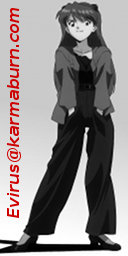|
|
Blog Archives:
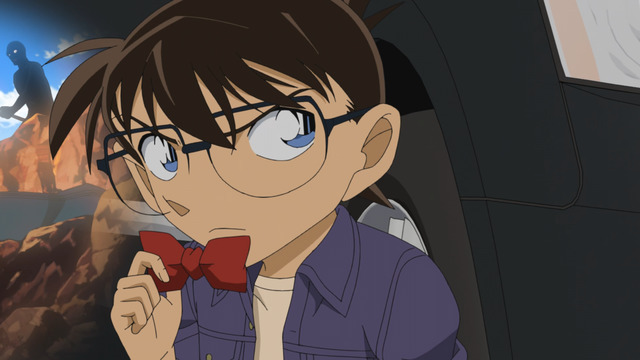
I wonder if Conan has ever accidentally put that thing through the wash.
Meitantei Conan crossed the 1000-episode threshold during the Winter 2021 anime season. Not counting the season it skipped due to Covid, Detective Conan churns out about nine or 10 new episodes each cours. Predicated on the assumption that the quality of these episodes remains basically constant, I have been using the series as a sort of control against which I measure my subjective impressions of the relative quality of seasonal anime. Theoretically, this will allow me to determine whether I am getting more jaded over time (or softer, as it were).
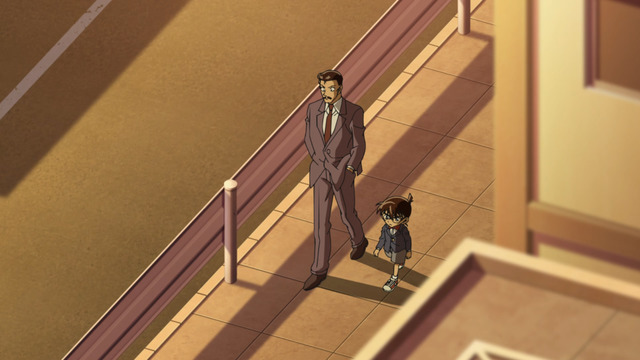
I do think it's odd when anime kids are drawn the size of literal babies.
In practice, I'm not sure this has worked out. This is not to say that the quality of Detective Conan episodes have declined necessarily, but the anime-original ones do seem less clever than I remember. And I think there are proportionally more anime-original episodes now. (I haven't actually compared seasons to see for sure.) I guess it ain't easy constantly coming up with new mysteries. The standalone cases based on the manga still seem fine, though.
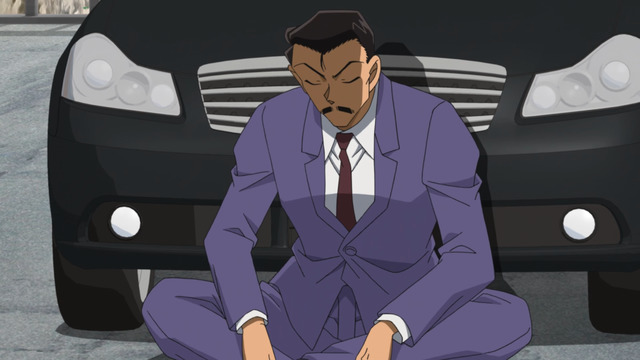
What happens to the darts? I've never seen Conan retrieve one.
Incidentally, the various actual plot lines of the franchise have made some progress, but they advance slowly, as you might expect of such a long-running series. I don't have any issue with the pace, to tell you the truth, but I do wish the series was willing to explore new gimmicks instead of relying on the exact same ones from a thousand episodes ago. Being drugged so often surely can't be good for Kogorou or Sonoko. For that matter, does Conan use the exact same tranquilizer darts on a teenage girl that he uses on an alcoholic middle-aged man? It seems as if the doses required would be dissimilar. Detective Conan is going to end with Shinichi in prison.
Posted in Detective Conan | Tags: Detectives, Mysteries, Shows that never end, Spring 2021, Winter 2021 | Permanent Link
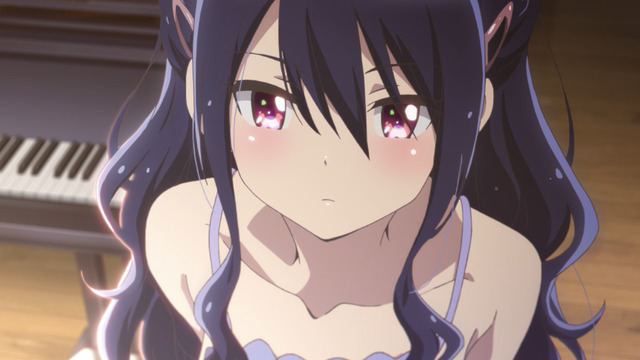
The childhood friend has good hair.
In addition to the shows described in the first and second installments, I am also following Kamisama ni Natta hi (The Day I Became a God). I find its comic timing better than the jokes themselves, but that already makes it better than most other anime comedies. This is also a Key anime, so some sort of trauma is assured by the show's end. It's probably not for everyone, but it's one of the better offerings this season so far.
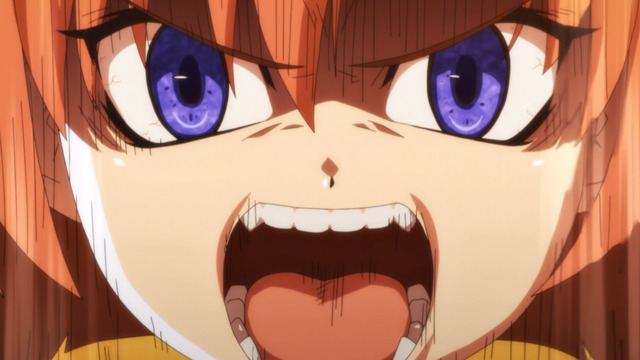
Rena seems sort of upset about something.
I only watched the first episode of the 2006 Higurashi no Naku Koro ni anime, and basically know nothing about the franchise except that it involves lots of murder and possibly time loops? However, I am willing to give 2020's Higurashi no Naku Koro ni - Gou (Higurashi: When They Cry – Gou) a try even though its first three episodes haven't especially impressed me. I'm not even sure why the Gou part of the title needed to be hidden until after the second episode. In any case, it's an excuse for more Yukino Satsuki (see also YashaHime), and I'll presumably enjoy the show more as the mystery develops.
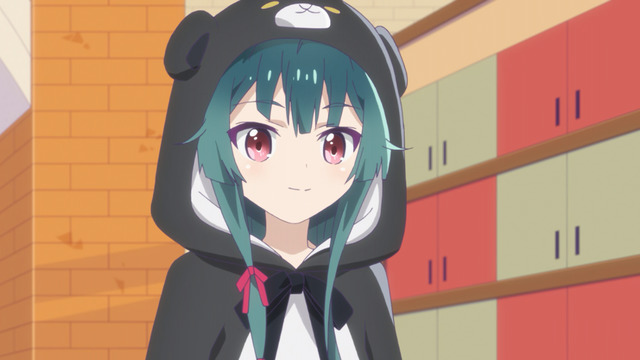
I still don't know why specifically a bear suit, though.
Kuma Kuma Kuma Bear (localized as The Bears Bear a Bare Kuma in English because each Kuma is written differently in the original Japanese title) is a silly show. Events within the first two episodes occurred non-chronologically, but I think that made the first episode more interesting. It's not really fursuit One Punch Man, but I at least enjoy Yuna's unconcerned reactions to fairly absurd events. Incidentally, I'm also enjoying Kawase Maki as Yayoi in Major 2nd S2, so she could be a seiyuu to watch for in the future.
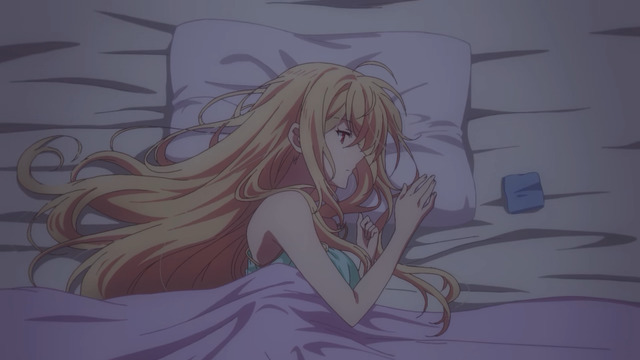
Chicks love handkerchiefs.
Kimi to Boku no Saigo no Senjou, Aruiwa Sekai ga Hajimaru Seisen (Our Last Crusade or the Rise of a New World) is sort of terrible. Like, I don't even feel motivated to point out the parts it really gets wrong. I will mention, though, that it cast Amamiya Sora in the sort of dignified princess roles she was initially known for (e.g., Asseylum from Aldnoah.Zero) before everyone realized Tenchan's true calling was loudmouthed shitbag roles (like Aqua from Konosuba). I'm pretty sure I'm only giving the anime a chance because someone on the Twitter said something nice about the light novels once, but there's also a good chance I've mixed it up with a completely different title.
Posted in Higurashi no Naku Koro ni, Higurashi no Naku Koro ni - Gou, Kamisama ni Natta hi, Kimi to Boku no Saigo no Senjou, Aruiwa Sekai ga Hajimaru Seisen, Kuma Kuma Kuma Bear | Tags: 16-year-old love interests, Autumn 2020, Childhood Friend, Hair, Jun Maeda, Key, Light Novels, Love Confessions, Mysteries, P.A. Works, Remakes, Romance, Season Introduction, Seiyuu, Unrequited Love, war | Permanent Link
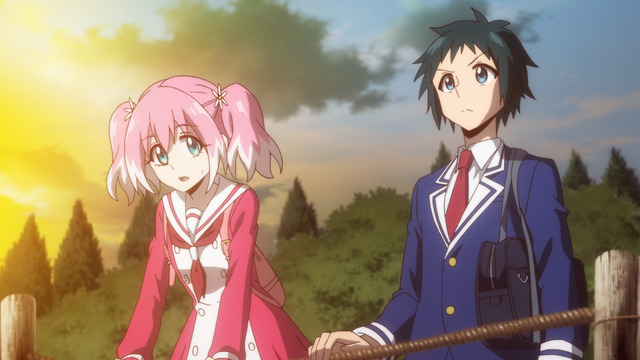
The front of Nanao's uniform reminds me of a Heinz bottle.
Adding onto this post about shows airing during the Autumn 2020 cours, my early top show is Munou na Nana (Talentless Nana) which had a surprisingly solid first episode, albeit one that relied on breaking from expectations, so you're better off avoiding spoilers and watching the first episode blind. Unfortunately, it looks as if the source manga isn't rated highly, so potentially the story doesn't fare so well later on. More optimistically, perhaps the low scores are merely due to problems the anime adaptation can fix.
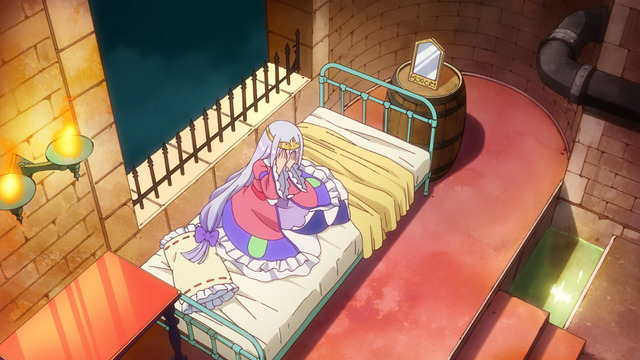
The horror of an anime bed made of concrete.
I'm more pessimistic about Maou-jou de Oyasumi (Sleepy Princess in the Demon Castle) which is one of those shows with a neat idea that runs the risk of wearing out its welcome if it turns out to only offer one basic joke that it repeats ad infinitum. I think the source manga remains well liked, so maybe I should have more faith it its potential for creativity.
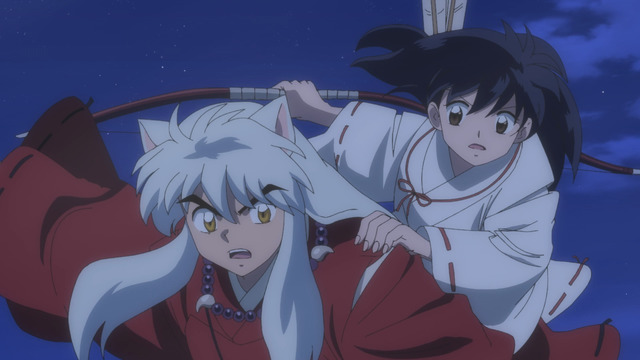
I don't even know why Inuyasha himself is a dog except that it's in his name.
Despite being almost entirely ignorant about InuYasha, I'm reasonably sure its sequel (spinoff?) will probably be at least sort of good thanks to having a respectable pedigree. Kyoukai no Rinne is actually the only Takahashi Rumiko thing I've ever seen, but that was pretty good. Her other works are popular, and I remember people being nuts for InuYasha back in the day, so Hanyou no Yashahime (Yashahime: Princess Half-Demon) at least has odds in its favor.
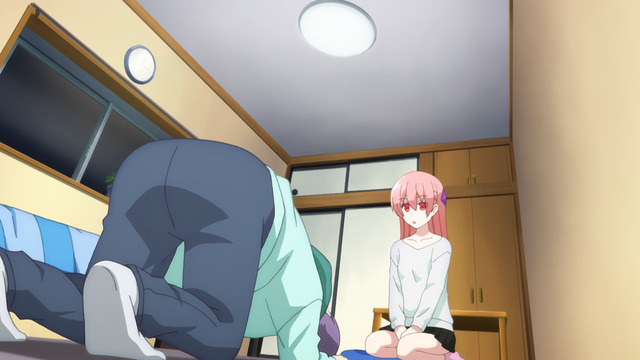
Mi casa es Tsukasa.
Tonikaku Kawaii (TONIKAWA: Over The Moon For You) also has a pedigree, but not one quite as good. It has probably already referenced its creator's other works a few times by now unbeknownst to me, though. The first two episodes were fine, but not outstanding, and I'm already quite tired of Potato-kun's penchant for freaking out. It's one of those "comic" behaviors that isn't as objectionable in manga form, but doesn't translate well to anime. I'm also worried a bunch of wacky cockblockers will move in with the couple. In fact, I can probably think of a whole lot of different ways this could go wrong, even though I think the manga remains popular. There are a lot of shows this season, so I'm not going to be as patient with it as I might have been just a few months ago.
Posted in Hanyou no Yashahime, InuYasha, Kyoukai no Rinne, Maou-jou de Oyasumi, Munou na Nana, Tonikaku Kawaii | Tags: 16-year-old love interests, ass shot, Autumn 2020, Bedrooms, Bend Her Over a Kotatsu, First Episode, Love Confessions, Manga, Mysteries, Romance, Season Introduction, Shounen Jive | Permanent Link
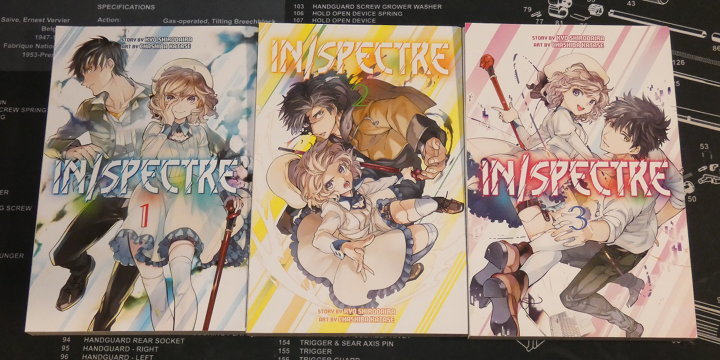
Iwanaga is not a chuuni. She's probably just re-adjusting her eye.
Although I really enjoyed the In/Spectre (Kyokō Suiri, or Invented Inference) anime, I was surprised at long the "Steel Lady Nanase" arc lasted. (Specifically, it takes up the entire rest of the cours once it starts.) I'm reading the manga now, and these volumes include afterwords by the original author that shed light on the situation.
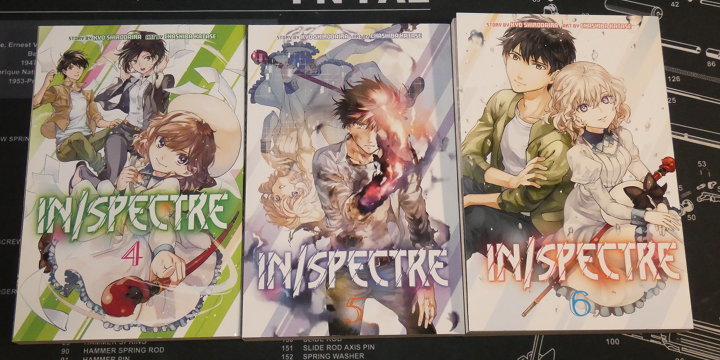
Despite appearance, Kuro is also not a chuuni. He is tsundere for his own girlfriend, though.
Kyokou Suiri was originally one book. This received a manga adaptation which spanned six volumes. The author claims he gave the mangaka essentially full control over the visuals and a lot of latitude to apply appropriate changes while adapting the book to manga form. This hands-off approach seems to have worked, as the manga proved popular enough to inspire the original author to write more stories (while lamenting the Invented Inference title no longer really fit the subject matter of the later material).
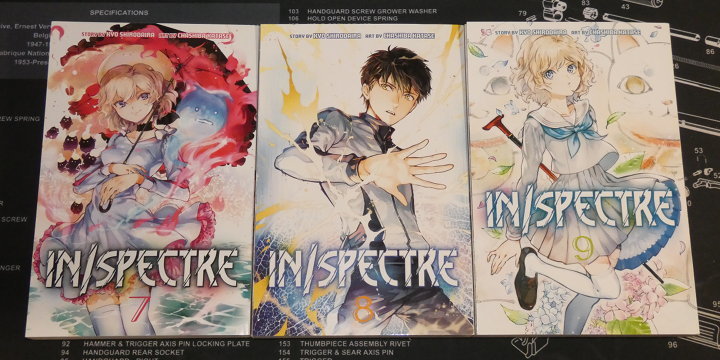
Iwanaga is wearing a school uniform because one of the stories takes place while she was in high school.
Notably, the original author (Shirodaira Kyo) wrote the subsequent material as short stories, rather than collaborating with the mangaka (Katase Chasiba) to produce scripts for the manga, reasoning that doing things differently at this point could inadvertently disrupt the chemistry of whatever it was that made the manga adaptation of the original book turn out so well. Well, he wasn't wrong. The five volumes following the "Steel Lady Nanase" arc are at least as good, if not better.
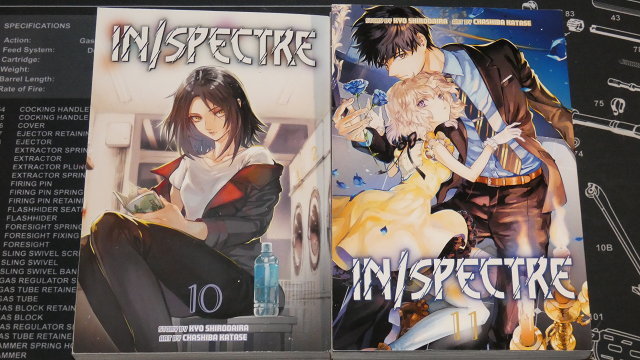
Rikka's not dead, she just looks like that.
As you may have guessed, the In/Spectre anime is itself an adaptation of the manga, and not a separate adaptation of the original book (which I've not had an opportunity to read). As adaptations go, it's very close, really only moving the arc with the giant snake so that it takes place before the Steel Lady Nanase arc instead of after it. I don't know if there are any plans to produce a sequel to the anime, but there is certainly enough source material to support one. All of the subsequent stories in the volumes I've read are shorter than the Steel Lady Nanase one, but at least three of them are long enough to span multiple episodes. Thankfully, the longest of these concluded at the end of volume 11, instead of with a cliffhanger leaving the reader waiting until the release of volume 12—that one won't be out until the end of August.
Posted in In/Spectre, Literature, Loot, Manga | Tags: Bad Things Happen to Good People, Bend Her Over a Kotatsu, Detectives, Hair, Idols, Love Confessions, Mysteries, Sex, tsundere, Unrequited Love, Winter 2020 | Permanent Link
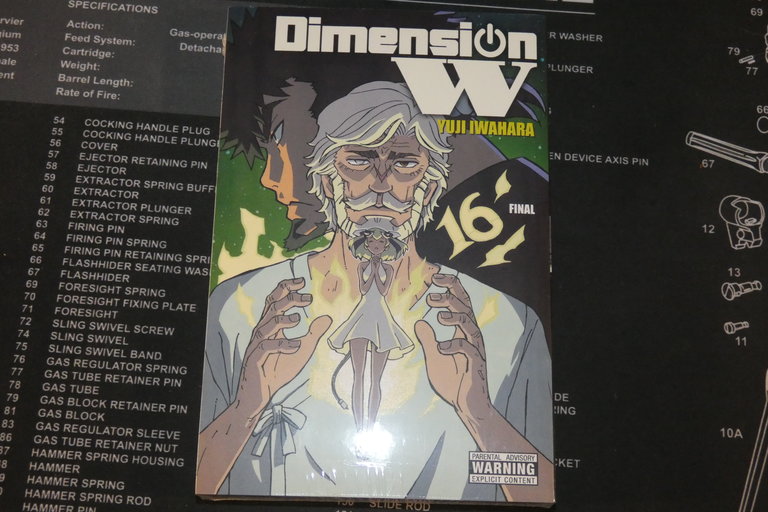
The glow-in-the dark covers are a nice touch.
The Dimension W anime ran for 12 episodes during the Winter 2016 anime season. I liked it a lot more than I was expecting—specifically, good enough that I started buying the manga. It took four years, but I have the final (16th) volume now. This took a bit longer than I would have liked, but the manga itself was still ongoing when the anime ended. (The manga completed in June 2019.) Ideally, there would be less time between when an anime ends and when its source material wraps up. I, for one, would much rather watch original anime or adaptations of properties that have already concluded, but those types of shows do seem to be in the minority. At least four years no longer seems like an extraordinary amount of time to wait after an anime stops airing before finding out how the series ends. I'm not sure if that's necessarily a good thing, though. I have to admit it's a little troubling to notice how fast years seem to whip by now.
Posted in Dimension W, Manga | Tags: Androids, Detectives, DVDs and Blu-ray discs, Fat Anime Characters, Manga, Mysteries, Nudity, tsundere, Ueda Reina, Winter 2016 | Permanent Link
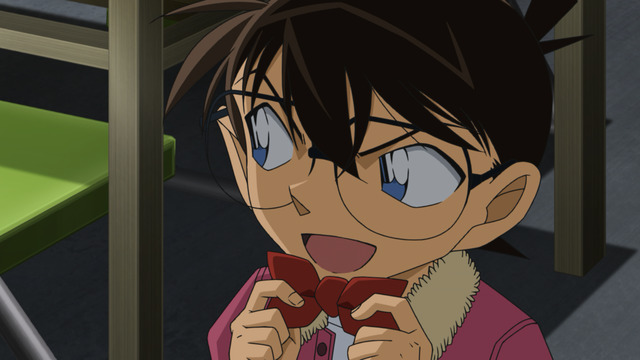
Well, this hasn't changed at all.
Surprising almost one one, I'm sure, there are not a lot of plot-specific episodes of Detective Conan. Rather, there are probably readers who may be legitimately surprised to hear that Detective Conan even has a plot. Even though most episodes of the show do not feature any continuity, the anime-original ones are notably inferior to the non-plot-specific episodes that at least still derive from the source manga. I can usually tell when an episode is an anime original, mostly because the mystery's contrivances will be stupid instead of merely silly, and oftentimes characters will do something perplexing simply because the action more easily advances the story from point A to point B. Basically, I'll be watching an episode, and something will happen to make me think it's an anime-original one, and when I check later it will turn out I was right. In fact, I'm not sure I've been wrong yet.
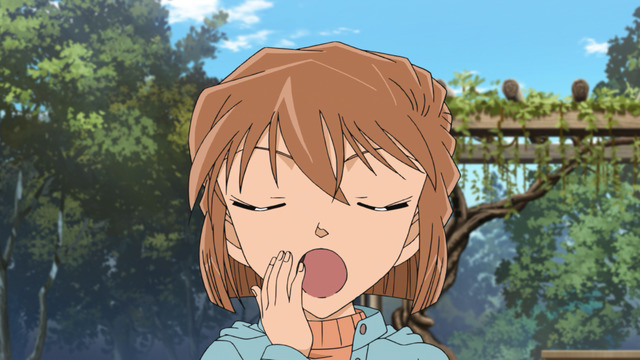
I'm pretty happy Hayashibara Megumi continues to have regular appearances, even if Ai seems sort of bored.
Having a greater ratio of anime-original episodes in Detective Conan now is perfectly understandable, seeing as how the anime has nearly exhausted the available cases from the source manga by this point. One of the secondary impacts, though, is that this means I can no longer reliably use Detective Conan as my control. For those of you who have no idea what I'm talking about, I started rating shows by episode as a goof years ago, but then the chart kept growing and now it's just one of those things I guess I'm going to continue doing indefinitely. But I also can't assume that my rating standards will remain consistent from season to season and year to year. Hence, I used Detective Conan as my control, theorizing that I could count on such a long-running show to remain pretty much as good as it ever was. Therefore, how much better or worse another show's rating is relative to the average Detective Conan score for the same time period would offer a reliable check on quality beyond the numerical scores themselves. This is probably no longer the case if there are more anime-original episodes of Detective Conan now, and assuming the anime-original episodes are not as good. I guess I'm going to need to come up with some other form of sham metric now. Alas.
Posted in Detective Conan | Tags: Autumn 2019, Detectives, Megumi Hayashibara, Mysteries, Shows that never end | Permanent Link
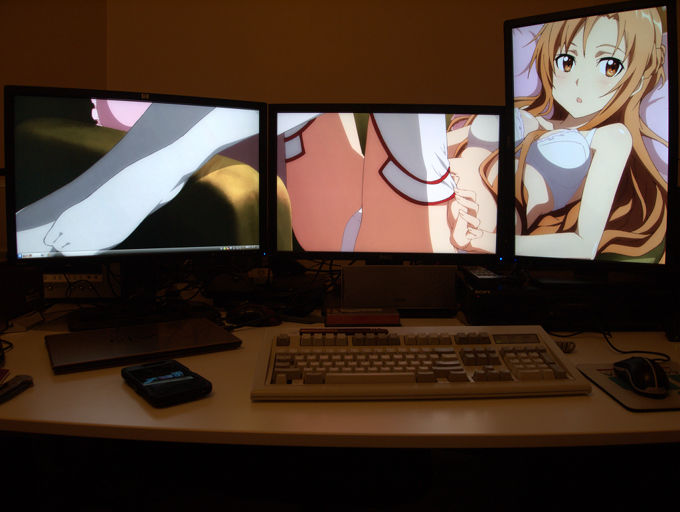
This was a proof of concept that I will never use
again (because I bought a fourth monitor).
I get the sense I wasn't exposed to a large portion of the shows that aired this season—an obvious consequence of not watching all that much compared to past seasons. Nevertheless, I'm not convinced I actually missed anything, although I do admit a curious fascination with Sword Art Online (despite the profoundly negative reactions to its cour-ending climax). I haven't yet watched a single minute of it, but I have read the first four volumes of the light novels (which I'm expecting the first two cours to cover). Learning that Kajiura Yuki is providing the music has put the show over the top, and I'll probably marathon the summer 2012 segment to catch up with the autumn 2012 episodes. Naturally, this will change my summer 2012 anime summary rankings, but it is late enough already and I can always reflect the addition with an update, so here goes:
(more…)
Posted in AKB0048, BEST GIRL, Binbogami ga!, Dakara Boku wa, H ga Dekinai, Detective Conan, Hyouka, Jinrui wa Suitai Shimashita, Loot, Oda Nobuna no Yabou, Pretty Cure All Stars New Stage, Season Summary, Smile Precure!, Tari Tari | Tags: Comedy, Detectives, DVDs and Blu-ray discs, Fan Service, Girl of the Year, Girl of the Year 2012, Hanakana Distortion Field, Hanazawa Kana, Harem Comedy, Haruka Tomatsu, Kyoto Animation, Mahou Shoujo, Movies and OVAs, Mysteries, OP ED, P.A. Works, Running, Season Conclusion, Shounen Jive, Spoilers, Summer 2012, war, War Is All Hell | Permanent Link
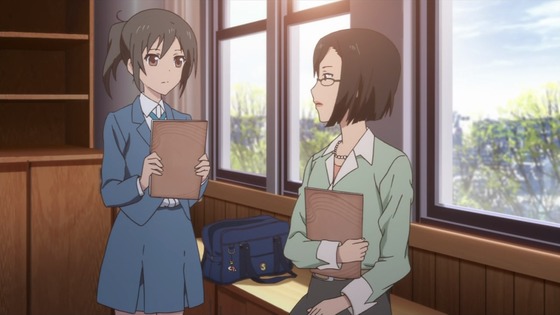
Oh God. The doujinshi.
Perhaps I haven't been particularly forthcoming about this, but the most important aspect of a show to me often tends to be its characters, or rather, how well I like its characters. I'll forgive lousy animation, stupid plots, and poor contrivances as long as I like the characters. This is not to say either Tari Tari or Hyouka necessarily suffer from any of these flaws, but it may explain what some people consider inexplicable and inconsistent tolerances on my part when it comes to these sorts of shortcomings.
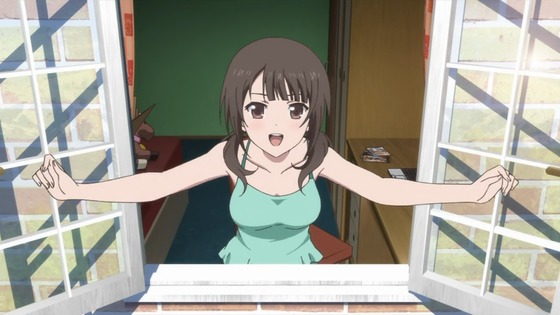
LISTEN TO MY SONG!
However, I did considerably like Tari Tari more than Hyouka because none of the characters in Hyouka resonated with me. I can respect that Kyoto Animation flexed its muscles a bit with Hyouka and genuinely committed itself to making a standout series over the past two cours, but all the layered depth and unspoken motivations, and developing relationships in that "SHAFT series with money" could not compete with Konatsu's dork rays, Sawa's unwitting-sex-bomb powers, and the refreshingly unstarchy comedy stylings of Wien and Taichi. Wakana deserves special mention as the sometimes emotional, sometimes dead inside, frequently mortified sweet kid cornerstone of an admittedly oftentimes conventional cast.
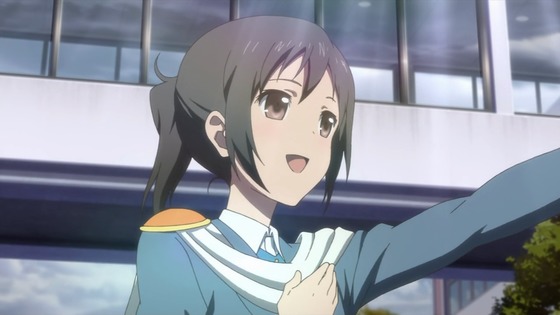
SPHERE POWERS UNLEASHED!
This is rather qualified praise for Tari Tari, and I concede Hyouka will likely be remembered better (and longer) in the years to come, but Tari Tari succeeds because it is basically is a P.A. Works layup of the sort J.C. Staff used to be able to accomplish reliably. Tari Tari is less ambitious, but it combines (harmonizes?) its different parts well (like a chorus?) with just a touch of quirkiness (and sometimes badminton) to keep things lively. It worked for me. I liked basically every character, even the foppish principal and the assortment of comically evil antagonists such as bitter Big C, the former best friend of Wakana's dead flibbertigibbet mom. I can't quite make the same claim for Hyouka. At the end of the day, I don't really care what happens to Mayaka and Satoshi, or whether Chitanda succeeds in ruining Houtarou's life.

At least Hyouka fans seemed satisfied by its non-ending ending.
What if it turns out I like the characters better because I like the show better, and not the other way around like I've been saying? I guess there's not really a conclusive way of knowing. I admit Hyouka's overt attempts at adding stylized animation for the sake of "look at me!" visual flair's sake annoyed me because I found it so intrusive, whereas Tari Tari is chock-full of audible cues in the form of sudden small cries and startled noises that I found endearing because I get the feeling I was not supposed to notice them. Perhaps I would have liked the characters in Hyouka had they been, say, more conventional J.C. Staff properties. It's a mystery.
Posted in Hyouka, Tari Tari | Tags: AYAKO DOCTRINE, Built for Sin, J.C. Staff, Kyoto Animation, Mamikore, Mysteries, P.A. Works, SHAFT | Permanent Link
|
|





